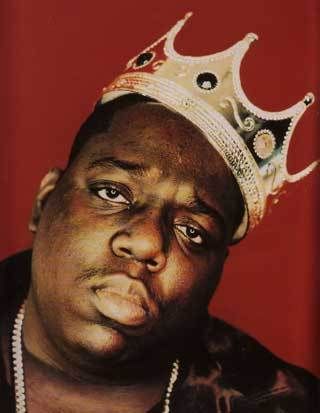The Notorious B.I.G.- “The What”
The story of Biggie Smalls is the ultimate urban Black narrative: He went from ashy, to classy. The life of Christopher Wallace tells of a popular sentiment shared by many
B.I.G. was never afraid to bring you the grimiest stories from the streets, with the most graphic imagery he could conjure up (peep “Somebody’s Got to Die” or “Long Kiss Goodnight”). But even while being gruesome he could make you laugh (who could say, “I shot Maxie Priest at least twelve times in the chest”). He could bring the ladies’ man swag that every kid who grew up on Blacksploitation films fiended for (didn’t it look like Big was resurrecting Ron O’Neil or Goldie in the “Big Poppa” video?).
But what gets Biggie remembered by many as the greatest rapper of all time was his lyrical ability: the skill to tell a story, rhyming words together cleverly on an instrumental, and all while staying on beat (I figured I define lyricism since we so rarely encounter it in mainstream Hip-Hop today). The inventiveness of the rhymes in “Unbelievable” (dude called himself “the triple beam dream”), the poignancy of the lyrics in “Everyday Struggle,” the rawness in “Who Shot Ya,” the realness in the words of “Suicidal Thoughts,” or the superior story-telling in “I Got a Story to Tell,” these are the abilities that puts B.I.G. in the pantheon of rap greatness and in every single argument over who’s the best MC’s… (Biggie, Jay-Z, or Nas???)
Or has it? Do the rhymes, abilities, and stories of Biggie still resonate with today’s Rap fan; especially with today’s young Hip-Hop listeners. Do kids who “Get Lite” or “Hyphy” want to hear about “Playa Haters” or “Goin Back to
This question of Big’s reputation today becomes all the more odd considering the fact that he was among the originators of bringing (and talking about) upscale fashion and culture to the Hip-Hop scene. But can Versace shades, Girbauds jeans, Coogi sweaters, trips to room 112 at the Parker Meridian, Kangol hats, Cristal, “Cubans with the Jesus piece,” or “Throwing Rollies in the Sky” match today’s True Religion’s, Mauri’s, Red Monkey’s, Patron, or Prada shoes?
“Will we always love Big Poppa?”
michaelpartis@gmail.com


No comments:
Post a Comment